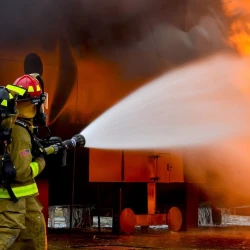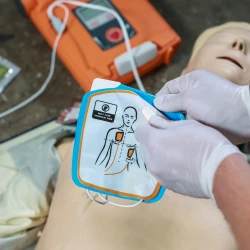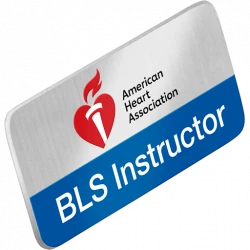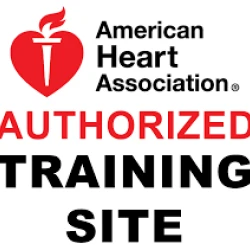Emergency Medical Technicians (EMTs) play a pivotal role in the healthcare ecosystem, particularly in emergencies. For those residing in the Granite State, pursuing EMT training in New Hampshire offers an opportunity to embark on a rewarding career while serving the local community. This article sheds light on EMT training in New Hampshire, emphasizing the unparalleled training opportunities presented by the Life Safety Institute.
Understanding the Role of an EMT
Before delving into EMT training in New Hampshire, it's vital to understand the role of an EMT:
-
Immediate Response: EMTs are often the first healthcare professionals on the scene during an emergency, providing life-saving interventions.
-
Patient Assessment: EMTs assess the condition of patients and decide on the necessary immediate care.
-
Stabilization and Transportation: They stabilize patients and transport them safely to medical facilities, ensuring continuous care en route.
-
Collaboration: EMTs collaborate with paramedics, nurses, doctors, and other healthcare professionals to ensure patients receive optimal care.
Why Pursue EMT Training in New Hampshire?
New Hampshire, with its diverse terrain, ranging from urban settings to remote areas, presents unique challenges and opportunities for EMTs. Here's why EMT training in New Hampshire is distinct:
-
Diverse Population: The state's mix of urban and rural populations ensures that EMTs are well-prepared for a variety of emergency scenarios.
-
State-specific Protocols: EMT training in New Hampshire is designed around the state's medical protocols, ensuring students are well-versed in the region's specific healthcare guidelines.
-
Community Involvement: Being an EMT in New Hampshire means being an integral part of the local community, often working closely with local fire departments, police, and other emergency services.
EMT Training Opportunities with the Life Safety Institute
When considering EMT training in New Hampshire, the Life Safety Institute stands out for several reasons:
Comprehensive Curriculum
State-aligned Content: The Institute's curriculum is tailored to New Hampshire's guidelines, ensuring that students receive training that's both nationally recognized and state-specific.
Broad Topic Range: From basic life support to trauma care, the course covers a wide spectrum of emergency care scenarios.
Hands-on Experience
Real-world Simulations: The Life Safety Institute prides itself on providing students with real-world experiences through simulations, ensuring they're ready for actual emergencies.
Clinical Rotations: Students undergo rotations in diverse settings, from hospitals to ambulance services in New Hampshire, getting a feel of the ground realities.
Affordable Training
The Life Safety Institute offers one of the most competitive rates for EMT training in New Hampshire. Their goal is to ensure that financial constraints don't deter passionate individuals from becoming EMTs.
Experienced Instructors
The faculty comprises seasoned EMTs and paramedics familiar with the nuances of offering emergency care in New Hampshire. Their insights are invaluable for trainees.
State-of-the-art Facilities
The Life Safety Institute offers modern facilities for EMT training in New Hampshire, equipped with the latest medical equipment and technology to ensure students are familiar with contemporary EMS tools.
Certification and Licensing in New Hampshire
After completing the training, students need to undertake the certification process:
-
NREMT Exam: The National Registry of Emergency Medical Technicians (NREMT) exam is a prerequisite for becoming a certified EMT.
-
State Licensing: Post the NREMT exam, students must apply for a state license in New Hampshire.
The Life Safety Institute assists its students throughout this process, ensuring they meet all the requirements seamlessly.
Job Opportunities Post-Training
Once certified, EMTs in New Hampshire can explore various job avenues:
-
Ambulance Services: Offer emergency care and transportation.
-
Fire Departments: Many departments require firefighters to be EMT-trained, given the overlap in emergency situations.
-
Hospitals: Assist in ERs, aiding in patient triage and care.
-
Private Sector: Offer on-site EMT services for events, corporate campuses, and more.
-
Advanced Opportunities: With further training, like the advanced courses at the Life Safety Institute, EMTs can upgrade to higher roles.
Conclusion
EMT training in New Hampshire is not just about acquiring medical skills; it's about preparing oneself to serve the community in its most critical moments. With institutions like the Life Safety Institute, students receive top-tier training tailored to New Hampshire's unique requirements. Pursuing EMT training in New Hampshire with such esteemed institutions ensures that aspirants are set on a path that's not just professionally rewarding but also socially impactful.





